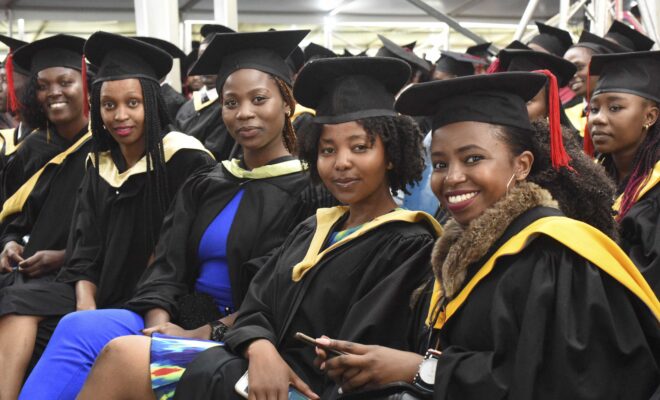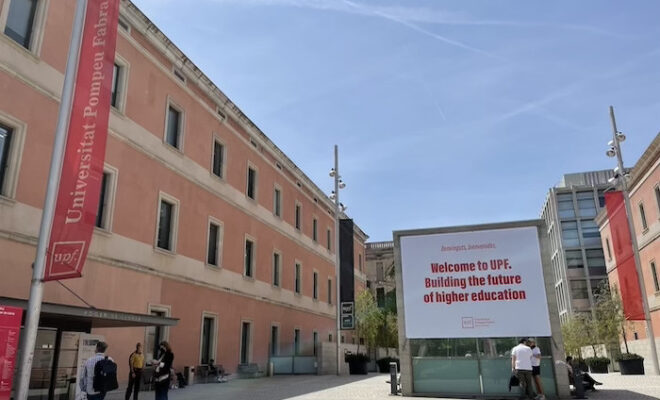Study seeks to support the growing participation of women in Eastern Africa’s higher education institutions
Globally, women’s enrolment in higher education institutions (HEI) has grown significantly in the last decades. In Africa, it has doubled in the past 20 years, but this figure is still low compared to other regions. Despite this achievement, imbalances in gender equality are evident: women are underrepresented in leading academic positions, publish less, have lower salaries, and there is a humanities bias
Higher education institutions have played an increasingly influential role in national and world affairs as they have expanded. However, this expansion faces multiple challenges relating to the inclusion of women in HEIs and their full and sustainable participation in the tertiary education sector, beyond enrolment to careers in higher education.
International Women’s Day 2022 was celebrated with the pre-launch of the report Supporting women participation in higher education in Eastern Africa: building sustainable and equitable higher education systems in Kenya, Uganda, and South Sudan, a joint project by UNESCO IESALC and the UNESCO Regional Office for Eastern Africa.
In the rest of the world, women outnumber men’s enrollment in higher education but not in Africa. The objective of the final report is to describe the situation of women’s participation in the Eastern Africa Region, identify areas with persisting gender inequalities and provide policy recommendations.
Francesc Pedró, Director of the International Institute for Higher Education in Latin America and the Caribbean (IESALC), said that there is good and bad news. There has been impressive progress in female access and graduation rates in the past years. However, they are left behind in getting upper academic categories, have lower income, and women still suffer harassment in institutions.
This year’s International Women’s Day theme was “gender equality today for a sustainable tomorrow.” Professor Hubert Gijzen, UNESCO Regional Director for Eastern Africa, expressed that gender equality is not just a dream, a target, or an aim. Still, it is an objective of common interest. “The reflection on the position of women in tertiary education is essential, crucial, because, like in many other sectors, women are simply underrepresented… We are grossly underutilizing Africa’s human resource capacity and intellectual potential”.
Both directors applauded this joint effort to support gender equality and overcome barriers that prevent women from having a complete and empowered role in societies to contribute to African development, which will hopefully be the “century for women in higher education.”
The report highlights the significance of higher education institutions in contributing to the 2030 Agenda through the attainment of the sustainable development goal 5: to achieve gender equality and empower all women and girls. Gender equality understood not only as a fundamental right but as a necessary foundation for a peaceful, prosperous and sustainable world.
The study’s preliminary results were presented by Daniele Vieira, who is part of the UNESCO IESALC Research Project Team and Assistant Professor at the Federal University of Pernambuco, in Brasil; and by Saidou Sireh Jallow, Senior Programme Specialist at the UNESCO Regional Office for Eastern Africa.
Vieira stated that globally, including Eastern Africa, inequalities persist in: the number of women who study science, technology, engineering, and math fields (STEM); those obtaining postgraduate degrees; and research performance, professoriate, or senior management positions and on wage.
In Kenya, for example, there are no female professors in one studied university, and the best figure goes up to 24%. The same imbalance occurs in the composition of senior university lecturers in most institutions. “The picture is the same in 3 countries, with slight improvements, in terms of absolute numbers, but when you come down to percentages, the imbalances are still there”, explained Sirhe Jallow.
In the launching webinar also participated Winnie V. Mitullah, Research Professor & UNESCO UNITWIN Chair Institute for Development Studies University of Nairobi; who sees affirmative action as a platform to bridge the gap and urges universities to facilitate practical support.
Over the years, women have been marginalized in education due to historical background from colonial times cultural and socioeconomic drawbacks. Still, advances have been made in policies at all levels, said Alice Odingo, Researcher and Environmentalist with Gender advocacy at the University of Nairobi.
There is a need to establish formal processes and procedures for enabling women to take leadership positions and also, for all genders, to hand over positions, explained Benon Basheka, Professor of Governance and Senior Management and Evaluation Consultant in Uganda.
Political issues need to be addressed. For example, in South Sudan, the National Council for Higher Education has not met in a long time due to the conflicts in 2013 and 2016. Hopefully, it will do so soon to resume its regulatory role over public and private universities, said Professor Sibrino Forjala.
The final report will be launched at the UNESCO World Higher Education Conference in Barcelona, in May 2022. It will reveal the current status of women’s participation in tertiary education in the region with recommendations to broaden it.
Main findings
- Gender equality in academic staff and top leadership positions is far from a reality. Men occupy most of the posts in the countries studied.
- HEIs appoint women for leadership positions based, among other things, on qualification and formal preparation, potential leadership qualities, affirmative action compliance, and reward for hard work.
- It is important that HEIs provide orientation to the institutional policies, procedures, guidelines, and job descriptions of the senior leadership positions.
- Conducting gender awareness campaigns among stakeholders might help boost women’s participation in HE in the region.
- Factors inhibiting women’s full participation in HE include patriarchal traditional norms and perceptions regarding female leadership and low female enrolment rates.
Preliminary calls to action to increase women’s participation

RELATED ITEMS








